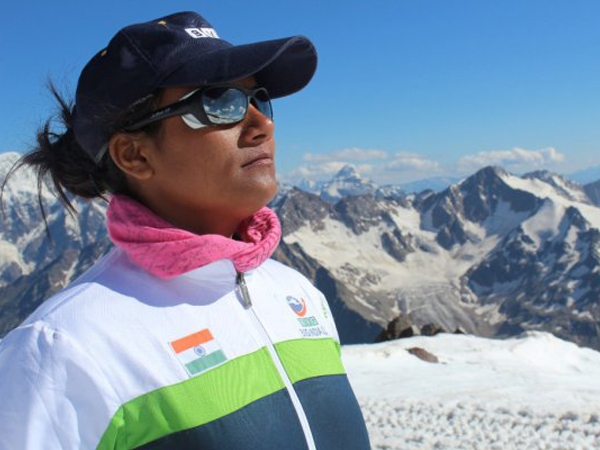It seems to be a week where everybody blames the Indian media for jumping the gun and going overboard with the Sheena Bora murder case without verifying facts. This has also dug up other skeletons from the past – of the Aarushi Talwar murder, of Sunanda Pushkar Tharoor’s death. Loath as I am to dredge the swamp further, there is one more story waiting in the wings. This one too bears all the hallmarks of quick and conflicting media reports.
It’s a story of one boy’s love affair, in Sankraud, Baghpat – a small village in Uttar Pradesh- and two women’s living nightmare – his sisters who were ordered to be punished for his ‘transgression’. Four days ago, this story made it to the front page of all papers that a khap panchayat of a UP village – all male council had ordered that the two sisters – Meenakshi (23) and her 15 year old sister be repeatedly gang-raped, have their faces blackened and then be paraded naked because the brother, Ravi, who is a Dalit, eloped with a married woman from a higher caste.
The terrified women had escaped the village before the punishment could be carried out and pleaded with the Supreme Court for protection.
A petition was initiated to save these girls from being subjected to this terrible fate. In a wave of outpouring support for the sisters (over 26,000 pledges), many have demanded divine intervention from the SC to strike down this “disgusting ruling”.
The coverage by Indian news site Zee Media outlines the love story between Ravi and the Jat woman, saying they wanted to be together when she was forcibly married to someone else in February.
The woman with whom Ravi eloped may also be in severe danger, according to the international human rights group. She married him willingly and is thought to be pregnant – while it is not clear whether the brother himself is in danger.
While outrage poured in on all sides for this ‘evil khap’ and British MPs even appealed to the Indian government with a call for action, the BBC struck a different and slightly uneasy note.
BBC correspondent Sanjoy Majumdar travelled to Sankraud to investigate the story and he reported to have seen something else altogether – a village outraged at being plunged into notoreity by what it claims is an ‘event that did not happen’.
“We’ve read in the newspapers that a British MP has expressed concern over the so called shameful treatment of women in our village,” one elderly man told Majumdar.
“The reports are completely false.”
“We are so ashamed that our village is in the news for something that did not even happen,” one young man shouts.
“We feel dishonoured.”
The woman who was supposed to have eloped with Ravi also told a different tale.
“I barely knew the man,” she said her eyes fixed on the ground, while surrounded by a crowd of family and relatives. “I didn’t even know his name. He tricked me into going with him saying he’ll get me a job. Then he kept me against my will.”
In his story Majumdar writes, “It’s difficult to judge whether she’s speaking of her own free will but her answers appear a bit rehearsed.”
The BBC report also goes on to say that Amnesty’s petition was based on the Supreme Court appeal and that their spokesperson admitted to not having visited the village so far to check facts.
The local police’s investigation shows that the girl went with the boy willingly, but there is no evidence of a khap meeting.
So whose story is true?
Is it the story of an outraged village which says they never had a khap meeting and a visibly nervous girl who denies ever having met Ravi?
Or is it the story of two frightened sisters who ran from the village and sought refuge with a lawyer in Delhi for court protection.
There’s a reason why this story RINGS true – it’s because this isn’t the first we have heard of stories like this coming out of India’s hinterland. The story of Sankraud may or may not be true, we don’t know that yet, but there have been enough examples in the past to make it believable.
In April this year, when her husband ran off with another man’s wife, a Rajasthan khap panchayat gave 25-year-old Mamta Bai two options: either live with the other man as his spouse, or pay him Rs 3 lakh as compensation.
Can we ever forget the chilling 2007 case of Manoj and Babli, from Haryana who eloped, married and established a new life in another place, only to be cut down in the prime of their lives by Babli’s politically connected family? Even with police protection, applied for by the couple, they were made to de-board a public bus, beaten up, dragged into a waiting car and hacked to death at another spot.
So cases like these have existed in the past. So why would the villagers insist that no such event has occurred? Could it be that the event really happened and the villagers were lying? It wouldn’t be the first time the entire upper caste of a village got together to support each other in matters of caste.
And if you remember that the Supreme Court made khap panchayats illegal in 2011 and what it did to the perpetrators of the Manoj-Babli killings – death sentences for five persons – it’s not so surprising that the entire village may lie.
Image courtesy: BCCL
More On >> Balancing Act



